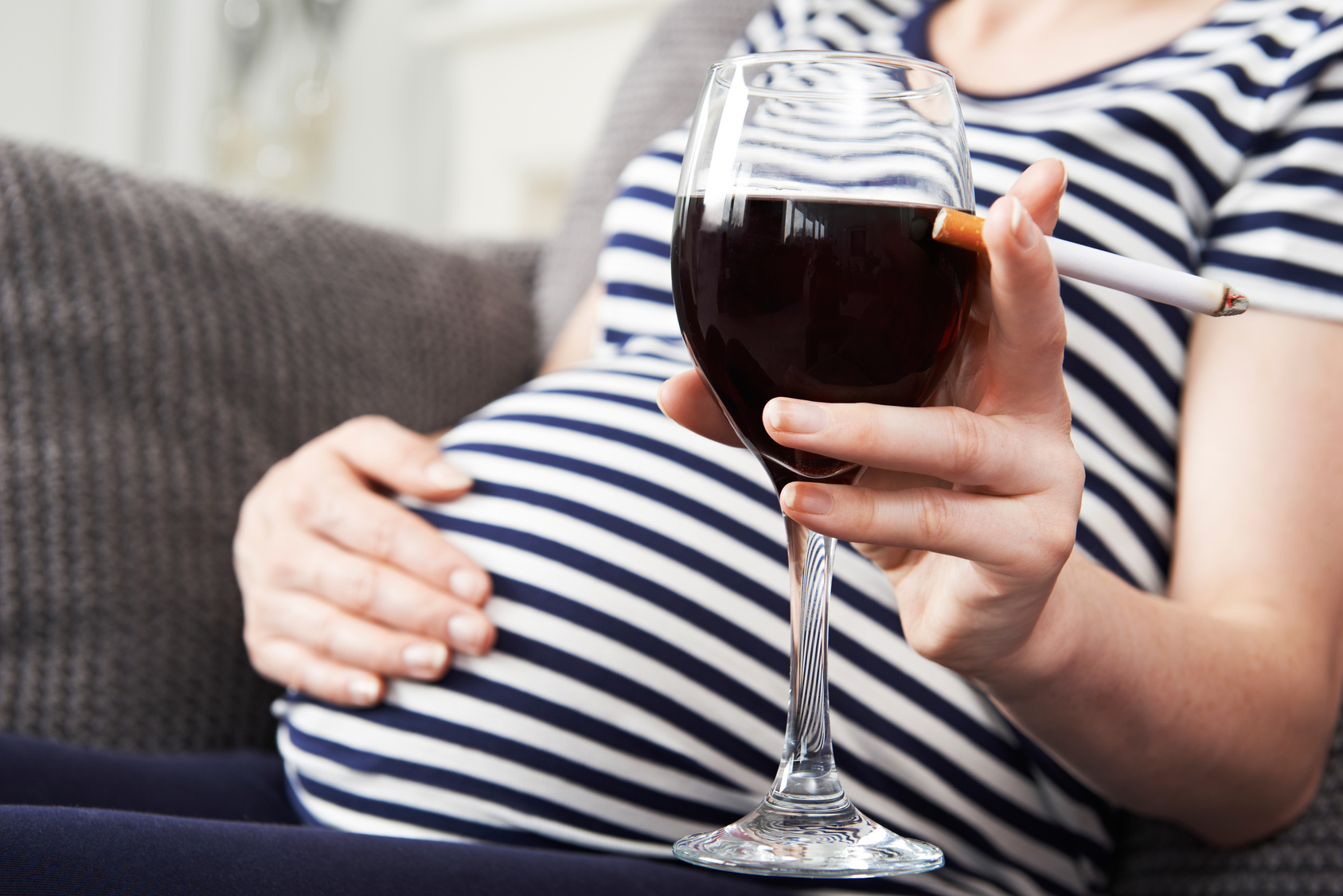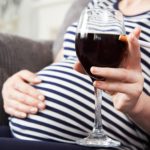While the harmful effects of alcohol on the developing fetus are well established, many women continue to drink during pregnancy; however, patterns of alcohol consumption vary from country to country. According to the Center for Disease Control, one in 10 (10.2%) of pregnant women in the United States reports drinking alcohol in the past 30 days. In addition, 3.1% of pregnant women report binge drinking – 4 or more alcoholic beverages on one occasion.
A recent study looked at 7000 women in 11 European countries assessed the proportion of women in Europe who drink alcohol during pregnancy. Almost 16% of women living in Europe consumed alcohol during pregnancy. The countries with the highest proportion of women reporting alcohol consumption during pregnancy were the United Kingdom (28.5 %), Russia (26.5 %) and Switzerland (20.9 %). The countries with the lowest proportion of women reporting alcohol consumption were Norway (4.1 %), Sweden (7.2 %) and Poland (9.7 %). The women who reported alcohol consumption during pregnancy were more likely to be older, more highly educated, and employed.
Despite so much evidence indicating that the consumption of alcohol during pregnancy carries a range of negative effects, including fetal alcohol spectrum disorders, one has to wonder why so many women continue to drink alcohol during pregnancy. Overall alcohol consumption is higher in many of these European countries, including Russia and Switzerland, a fact which might contribute to higher rates in pregnant women. The prevalence of alcohol use disorders varies widely from country to country, and it is possible that rates of alcohol consumption during pregnancy may reflect a higher number of women with alcohol use disorders.
Another possibility is that we are not sending a clear message regarding the risks of consuming alcohol during pregnancy. The International Alliance of Responsible Drinking (IARD) maintains a database of guidelines released by governmental agencies around the world regarding the consumption of alcohol by women who are pregnant or who may become pregnant. While some countries do not publish any guidelines, most countries recommend that alcohol should not be consumed during pregnancy. But the language used to convey the message varies considerably, with some countries stating that it is best to abstain from alcohol during pregnancy, while other countries use stronger language. For example, the guidelines provided by the United States note that “Drinking during pregnancy, especially in the first few months of pregnancy, may result in negative behavioral or neurological consequences in the offspring. No safe level of alcohol consumption during pregnancy has been established.”
Exactly how the media represents the risks associated with alcohol consumption during pregnancy reflects societal norms and beliefs and may influence how scientific data is interpreted, further contributing to conflicting recommendations regarding the use of alcohol by women during pregnancy. For example, an article published in the British newspaper, The Guardian (“Little evidence that light drinking in pregnancy is harmful, say experts”, notes that many women feel “shamed” by the National Health Service recommendations to abstain from alcohol during pregnancy. “A precautionary approach is still reasonable, but with luck this should dispel any guilt and anxiety felt by women who have an occasional glass of wine while they are pregnant.”
In the United States, author Emily Oster, in a series of widely read articles and a book entitled Expecting Better: Why the Conventional Pregnancy Wisdom Is Wrong–and What You Really Need to Know, calls into question the recommendations made by the American Academy of Pediatrics stating that no amount of alcohol should be considered as safe to drink during any trimester of pregnancy. She argues that, while there are multiple studies to indicate that heavy drinking poses significant risks to the developing fetus, the data regarding the effects of light to moderate drinking are less clear. In the context of that uncertainty, medical professionals tell their patients that the safest option is abstinence during pregnancy. In contrast, Oster, and some professionals (especially outside of the United States), have a more benign view of alcohol during pregnancy, stating that light drinking during pregnancy is probably safe.
We know that fetal alcohol syndrome or FASD can vary in terms of severity and that heavy alcohol use is more likely to cause FASD than lighter alcohol use. But we don’t really know what constitutes safe drinking. Some doctors may say that it’s OK to have a drink of wine with dinner, but at this point we don’t have enough data to support that recommendation. Because we don’t have enough information to indicate the safety of “light” alcohol use and because alcohol is it not medically necessary or beneficial during pregnancy, we recommend that women refrain from drinking alcohol during pregnancy.
Ruta Nonacs, MD PhD
Consumption of alcohol during pregnancy-A multinational European study. Mårdby AC, Lupattelli A, Hensing G, Nordeng H. Women Birth. 2017 Aug;30(4):e207-e213.
Is One Drink OK For Pregnant Women? Around The Globe, The Answer Is No (NPR)
No change to alcohol guidelines for pregnancy (National Health Service, United Kingdom)
Norwegian women drink least while pregnant, British women drink most (Science Daily)









Leave A Comment